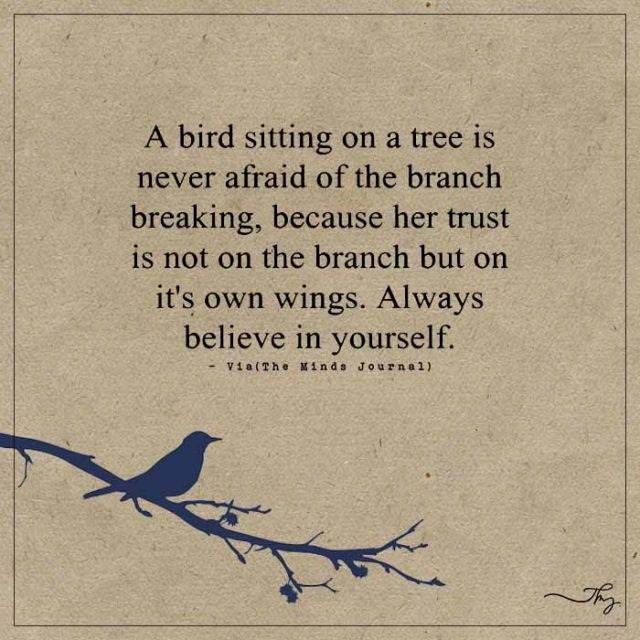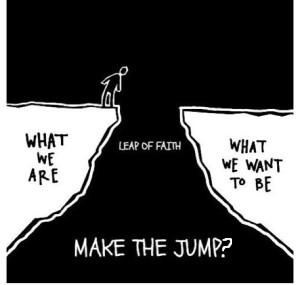Your Views Matter – Making Yourself Heard in Public Forums
“In meetings, I often hesitate to share my thoughts, even when I know the topic as well as, if not better than many others, because I am afraid of what will they think about me if I disagree with them”. If you too feel that making your voice heard in public forums is something that does not come easily to you, you are not alone. I quite often hear statements similar to this, in my work as a leadership development coach.
This reluctance to speak up is even more pronounced when it comes to many women leaders. During my workshops and coaching sessions, I have heard sentiments ranging from – “I don’t want people to think of me as too bossy” to “I feel uncomfortable being the center of attention after I have said something and others start looking at me” to “some men speak so loudly and continuously, I feel I will have to shout to make my voice heard and I don’t like doing that” and “sometimes there are senior people present and it won’t look nice if I contradict them”.
So while on one hand, these leaders want to state their opinions; on the other hand, such beliefs come in their way of truly expressing their thoughts. But let’s face it, in life and especially in the corporate world; opportunities to speak up are not going to be handed to anyone on a platter. It is unlikely that your colleagues are going to pause in the midst of an energetic conversation and say ‘wait we have not heard from you so would you like to share your thoughts now’. In fact, the more you shy away from expressing your thoughts, the more are people likely to form an impression of you as being either disinterested or lacking confidence or not having original thoughts or not having ‘presence’. It can become a vicious loop. And therefore we need to create our own moments and opportunities.
So what can you do, if public speaking doesn’t come very easily to you?

1. Believe in yourself. The most important element towards speaking with confidence and conviction is self-belief. You truly need to believe that what you have to say is worthwhile and deserves a chance to be heard. If you don’t believe in yourself, but you want others to do so, it is the equivalent of handing them the remote control of your self-esteem. They get to decide which buttons to push. Hence consciously try to avoid self-doubt and over-thinking. One way of doing that could be to consider your perspective the equivalent of the missing secret ingredient of a great recipe OR the key question that unravels the entire mystery. By speaking up you bring diversity of thought and freshness which enriches all good debates.

2. Prepare, prepare, prepare – It is said genius is 99% perspiration and 1% inspiration. Star athletes, great public speakers and cinema artistes noted for their acting abilities spend a large percentage of their time preparing beforehand in order to achieve that one moment of perfection. So next time, you have an important meeting, do invest time in advance on things like- knowing more about the other people who are likely to be present in order to find out common areas of interest, researching on the topic that is going to be discussed, examining historic data on the reasons behind past wins or losses, competitor and market information etc.; basically anything that gives you the confidence to back up your own thoughts with relevant data, if questioned.

3. Go for quality, not quantity. Another technique could be to think beforehand how much and what will you speak about. Start small – maybe you could tell yourself I will definitely speak at least once or twice during meetings and then make those instances count. For example, you could decide that in the next meeting my focus will be on stating my own point of view that I have come prepared with OR that I will ask pertinent questions of the speakers to convey my interest along with establishing myself as an equal OR I will spontaneously respond to whatever emerges during the discussion. Whatever path you choose, give yourself small targets initially and then take the leap.

4. Just do it. Further to the point above on responding spontaneously, another way of pushing yourself out of your comfort zone could be to ‘just do it’. In other words, don’t keep over thinking and critiquing your response in your own head but just go right out and say it. Have faith in your own years of experience and expertise that you have built up and believe that you will be able to answer any questions that may get posed to you. The more you practice ‘jumping in’ the easier it will become as time progresses.

5. Feedback works wonders. In order to project confidence (even if you are not feeling confident) it is very helpful to pay attention to non-verbal cues. Amy Cuddy’s famous TED Talk on Body Language draws attention to the importance of nonverbal in displaying executive presence. “Fake it till you become it”. So in order to increase your self-awareness on how you are coming across – you could rehearse your upcoming speech in front of a mirror to see your body language or even better you could record yourself on a video. A great way to make your impact sharper is to ask feedback from trusted colleagues on what you are doing well and what you can get better at. And then sincerely work on what gets highlighted.
To sum up, it is to your advantage and long term career success if you challenge yourself and learn to get comfortable stating your thoughts in public. Speaking up at the right platforms and in front of stakeholders can help position you as a key player and influencer of organizational matters.
“Without self-belief nothing can be accomplished. With it, nothing is impossible”
– Felix Dennis
Reference:
Who Knows What You Do? When Competence Alone Is Just Not Enough!

“Why should I have to talk about my work or my achievements? Shouldn’t the results that I have managed to achieve year on year, my sincerity, my non-political approach, be enough in themselves, to speak for me and the value I bring”?
Sentiments similar to these have been echoed time and again by many of the people I have had the privilege of working with, during the course of my work as an Executive Coach and a Leadership Development Consultant. If you too consider talking about yourself and your accomplishments as an inherently distasteful thing to do, then you are not alone! Many people view this as boasting or ‘game playing’. To them, it is exceedingly important that their work be the biggest thing that speaks for them, underpinned by a belief that taking efforts to create visibility for themselves is unnecessary; a waste of personal time, organizational resources and quite frankly beneath them. Such people often operate with an assumption that those who indulge in what they see as ‘politics’ need to do so, as perhaps the latter’s work lacks substance and therefore this ‘people pleasing behaviour’ is in essence a cover up for their performance inadequacies.
So, what happens to them when faced with their more politically savvy counterparts? During my conversations I have seen reactions range from; a sense of disbelief – how can people actually stoop to playing such games, to ‘can’t the world see this guy is a fake’, to a sense of resignation – okay let those who want to do all this do it, I will focus even harder on my work and my results will show everyone.
WHAT DOES HUMAN HISTORY TELL US?
The above tends to be a somewhat naïve and simplistic worldview. From ancient times, human beings have not lived in isolation but have banded together for reasons ranging from; a better chance of survival, companionship, religious beliefs, ideological preferences, love, duty and so on.
Aristotle, the Greek philosopher called man a social animal. As individuals, all of us are uniquely talented and there is a lot everyone can offer, however it is also a fact that alone we cannot produce all the things that modern living requires. Collectively, we achieve more when we collaborate and work together. Hence, the need to live in groups and adapt to its norms in order to survive and thrive.
At the same time, human history is also filled with examples that hammer home the fact across cultures, periods of time and geographies, wherever people have lived in groups, there have also been differences of opinions, desires, agendas and consequently power dynamics. Whether it is kings in medieval India giving precedence to their own kingdoms by forming alliances with outside forces at the cost of a threat to the country’s sovereignty, the two World Wars, Iraq’s invasion of Kuwait and the subsequent Gulf War or as the current events in Syria are turning out; there is another side to human beings that gives rise to power plays and consequently maneuverings. Even in familial set-ups; be it a couple, siblings, cousins; undercurrents often exist, albeit the degree varies across situations.
INFLUENCE: LET’S AIM WIN-WIN
Coming to the corporate world; no matter how flat the hierarchy is in an organization, there will be quite often different agendas at play. This fact can have a significant impact in matrix organizations, where in order for one to deliver tasked results, multiple stakeholders need to be managed, and who often at times may have conflicting priorities. If we juxtapose this reality with the belief some people hold; that simply past performance, good intentions towards furthering overall organizational goals and a non-partisan approach should be sufficient in themselves to win them support and commitment of peers or the backing of senior stakeholders towards their views, such individuals can often be left feeling surprised by the reluctance and/or resistance they find themselves facing. One highly probable explanation for this state of affairs can be the fact that careful attention has not been paid by them on how to position themselves and their views for maximal acceptance.
Therefore, ‘Influence’ and all the nuances that this word encompasses, is the most common development area that I have seen, across organizational levels. Data from varied sources – findings of a 360-survey report, inputs of reporting managers, views of mentors, an individual’s self-reflection and even feedback from the team one leads, wherein this point has been expressed both in the form of a grievance or a wish, supports the fact that it is vital to pay attention towards developing a versatile influencing approach.
A point I would like to clarify here is that the word influence has to be seen very differently from the word manipulation as the latter has negative connotations. Whereas our intent behind the former is to consciously think about who one is trying to influence and then try to ascertain a methodology which that particular individual or group of individuals is likely to find the most persuasive.
Seen this way, influence is about trying to present your thoughts from the point of view of your stakeholder while paying specific attention to the fact of how is it likely to address their needs or mitigate their concerns. It is not about adopting ‘convince or be convinced’, my way or no way’ kind of tactics but ideally an approach that strives to find win-win.
There are multiple approaches that one can adopt to influence one’s stakeholders and eminent scholars far more qualified than I, have spent years researching on this subject. There are many frameworks or models that one can deploy to increase their repertoire of influencing styles – Gary Yukl’s 9 Influencing Styles and Robert Cialdini’s Principles of Persuasion are notable for their popularity and practicality of suggestions.
CREATING VISIBILITY: GOOD TO DO OR MUST DO?
So, having established the importance of developing a conscious strategy while trying to influence others, an aspect I would like to highlight is that an often-neglected source of influence is the power of our own personal brand or what we are known for. In my experience, one of things that I have observed is that, many people tend to downplay the importance of creating visibility for themselves. This is especially true of those who believe that ‘good work should be its own ambassador’. With such people, there is a tendency to hide one’s light under a bushel and a reluctance to proactively engage with the broader system; beyond the needs of the task at hand.
This is even more true of many women. In my work with women leaders, I have noticed that often, women invest most of deliverers and able executors; on the other hand, this singular focus means they can overlook the importance of enhancing their visibility across the wider organization. Additionally, certain beliefs and assumptions they may hold about themselves and their duties and responsibilities towards their families, means many of them hold themselves back from raising their hands to take on high profile assignments, seek sponsors for themselves or consciously position themselves for top-of-the-mind recall. The issue gets compounded if one’s personality is added to the mix – if an individual is introverted, then even the thought of having to expend time and energy to ‘network’ is met with discomfort and even resistance. Their energy and time in delivering excellence in what they have been asked to do. On one hand, this makes them very dependable.
But in today’s boundary-less, wired world it become even more important that we are able to showcase our thought process, capabilities and potential to an audience that may not have ever experienced working with us in real-time.
I would, in fact say, that it is very important to understand this reality that it is not just how well you do what you do but equally important is the aspect of who knows what you do and are capable of doing.
Competence alone is not enough to differentiate us from those around us who may be similarly reliable, competent and good intentioned. It thus becomes almost imperative that we push themselves out of comfort zone and take steps to create a ‘brand’ about ourselves. Marketers McNally & Speak define a personal brand as,” your brand is a perception of emotion, maintained by somebody other than you, that describes the total experience of having a relationship with you”.
THE POWER OF A PERSONAL BRAND
A strong personal brand can enable us to be favorably placed in the minds of key senior stakeholders when it comes to matters such as decisions on career moves, stretch assignments, leading bigger teams, high impact projects and managing strategic clients, among other things. It can also assist us to advocate for resources that our team may need or to push back with a higher probability of acceptance when it comes meeting unreasonable demands.
There are various ways in one which one can build their personal brand. The journey towards defining what do I want to be known for, begins with honest self-reflection on one’s values, principles, priorities and dreams. Seeking feedback from trusted sources on one’s unique strengths is helpful in the process of introspection. Often times the findings of an external assessment can also highlight one’s distinctive qualities. Collectively, these can be some ways to arrive at one’s own brand persona. In addition, experts suggest using social media mindfully such that the messages or views one shares across platforms are in sync with one’s brand. Furthermore, giving back to the community through sharing knowledge and skills is another thing that helps create positive recall for an individual.
In his seminal work, Sources of Power, Gary Klein talks of 5 kinds of power. In connection with our theme of influence and creating a personal brand, one way of building opinion in your favour can be to establish your expertise in an area such that you are seen as the ‘go-to’ resource in that domain. Another way to create visibility can be to increase your Referent Power. This comes from cultivating interpersonal relationships with people in the organization such that they see you as someone they trust, admire and respect and this in turn ups your ability to wield influence.
To conclude, a quote from the globally renowned author and management expert, Dr. Kenneth Blanchard comes to mind, “the key to successful leadership today is influence and not authority”.
References:
- Influence: The Psychology of Pursuasion by Dr. Robert Cialdini
- Leadership in Organisations – Gary Yukl
- Sources of Power by Gary Klein
- Be Your Own Brand: A Breakthrough Formula for Standing Out from the Crowd – David Mcnally & Karl D Speak
- HBR Press – Understanding the Reality of Your Organisation
- Excerpted from Being the Boss: The 3 Imperatives for Becoming a Great Leader by Linda A. Hill and Kent Lineback
Author- Nidhi Panjwani is a leadership development professional who combines expertise, experience and a passion for enabling others to unlock their own potential. She works with a diverse client base in globally leading MNC’s engaging with leaders at senior and middle management levels. Her client experience spans multiple geographies – India, South Asia, Far East, Middle East and Europe. When she is not coaching or facilitating; she is an avid fiction reader, a happy traveller, and enjoys trying her hand at craft work and being part of local community events.